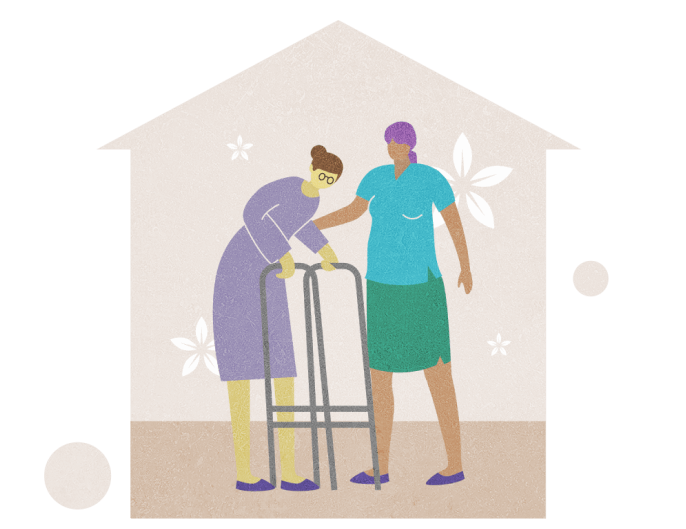Assistive technologies for those with dementia
![]()

Assistive technologies for those with dementia: how to keep safe at home
Dementia is a neurological disease that causes memory loss, confusion, and difficulty communicating. People with dementia often require assistance in their daily lives, especially when it comes to safety. Keeping individuals with dementia safe at home is a major concern for family members and caregivers. In this blog post, we will discuss assistive technologies that can be used to enhance the safety and independence of those with dementia.
GPS tracking devices
GPS tracking devices are beneficial for families with elderly members who suffer from dementia but who still want access to their local communities. The device can be attached to clothing, shoes, or watches, providing real-time tracking of an individual’s location. GPS tracking devices can help keep people with dementia stay safe, especially when they wander off and get lost, or if there are fluctuating periods of disorientation. If your loved one gets lost or becomes disorientated at specific times during the day, you can easily locate them through a GPS tracking device. This technology can be life-changing for individuals with dementia and their caregivers, offering greater independence with added reassurance for times of disorientation.
Medication dispensers
Many people with dementia forget to take their medication regularly. Medication dispensers help ensure that medication gets taken on time. These devices can be programmed to dispense the right medication and dosage at specific times of the day. This technology reduces the risk of overdose or missed doses, which is a significant safety concern for individuals with dementia.
Smart home devices
Smart home devices are an excellent tool to monitor and automate home appliances that are crucial for someone with dementia. For instance, smart security devices with cameras allow you to monitor your loved ones remotely. Smart thermostats allow you to set comfortable temperatures that your loved ones can adjust themselves without confusion. Smart lights can be programmed to turn off or on, which will keep the home well-lit.
Personal Emergency Response Systems
Personal Emergency Response Systems (PERS) are a lifeline for people with dementia, especially in cases of falls, accidents, or medical emergencies. PERS consist of wearable devices that can be activated by pressing a button. This will alert emergency responders, friends, and family in case of an emergency. This technology ensures that seniors with dementia can live life independently without worrying about their safety. Some technologies can detect if a person has fallen without activation. These environmental monitors can detect irregular shapes in irregular places. detecting if help is most likely needed. Let’s wait to see what AI brings in addition.
Cognitive stimulation technology
Cognitive stimulation technology may be useful in slowing the progression of dementia. This technology encourages individuals with dementia, keeping them engaged and active, which may delay the onset of the disease’s symptoms, enhance cognition, and reduce behavioural or psychological symptoms. These technologies, which can include simple games, puzzles, memory challenges, or computer-based tasks, can make a world of difference.
Incorporating assistive technologies into your daily life can increase safety and promote the independence of your loved one with dementia. While such technology can never replace the care and attention of a loving carer, it can provide additional support for those requiring dementia care. By leveraging the power of technology, you can ensure that your loved one’s safety is always prioritised. If you’re unsure of which technology is suited to your lives, research, speak with a healthcare professional, and test things out. The right assistive technology may make all the difference in your loved ones’ lives, offering a greater sense of control and independence. If you’d like to learn more, enquire with our team on 0208 857 7717.
Speak to our team
We’re always happy to have a friendly, informal chat. Call 0208 857 7717 to discuss your live-in care requirements with a member of our team.
